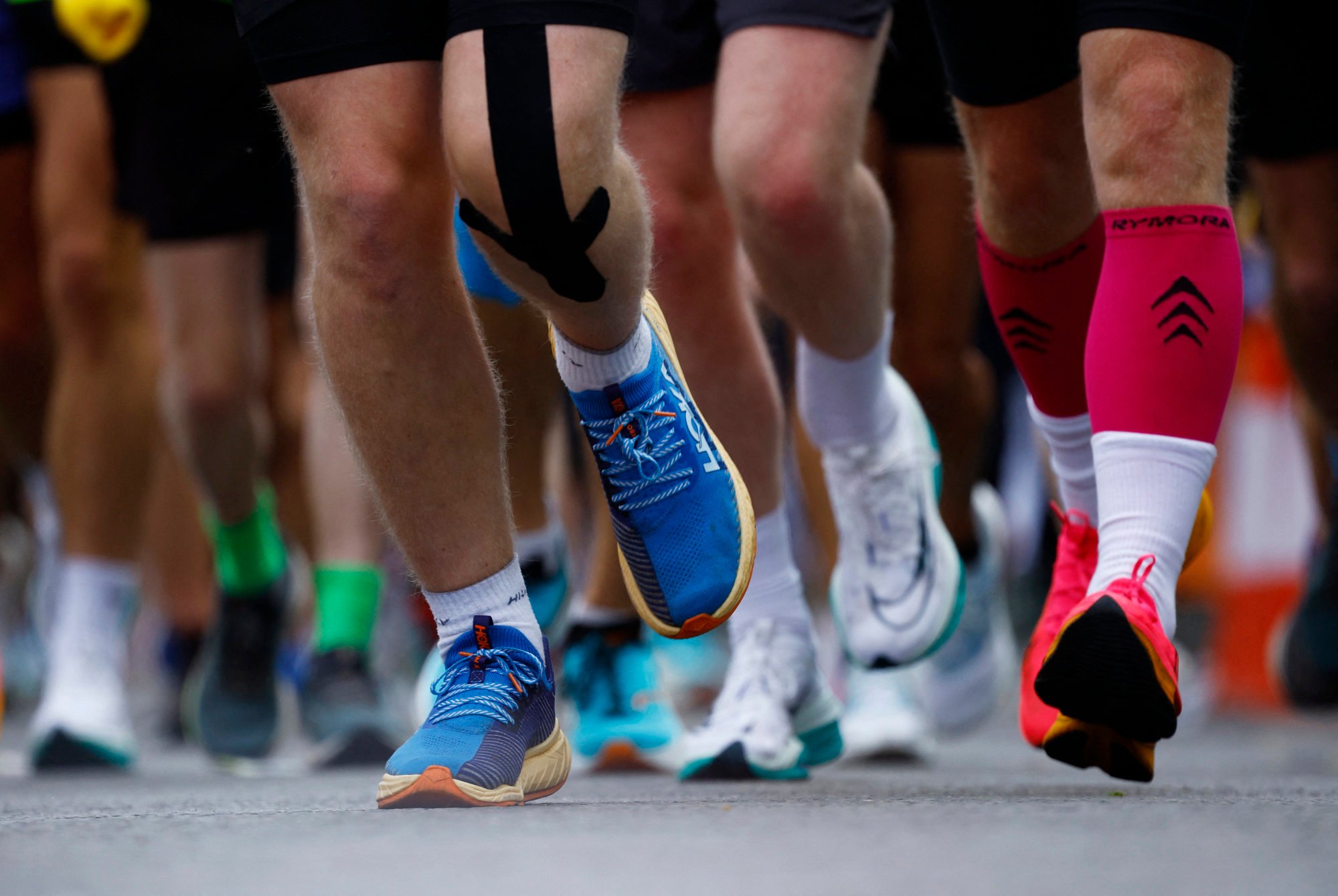
DEHYDRATED ATHLETES PERFORM MUCH SLOWER WHEN RUNNING THAN THOSE WHO INTAKE FLUIDS BEFORE RACE IN ALL CONDITIONS, STUDY CONFIRMS
- A loss of just 2 per cent body weight can cause some runners to become up to 19 per cent slower
- Study participants who completed a 3km treadmill time trial in a state of hypohydration were 6 per cent slower on average
Dehydrated athletes run significantly slower than hydrated runners even in temperate conditions, according to a new study which shows the importance of drinking fluid before a race.
A loss of just 2 per cent body weight, excreted via sweat, can cause some runners to become up to 19 per cent slower.
The research, published in the Journal of Sports Sciences, concluded that athletes competing in longer races in hotter environments should "adopt fluid intake strategies with the aim to limit hypohydration to less than 2 per cent body mass if performance time or exercise intensity are of importance".
Do you have questions about the biggest topics and trends from around the world? Get the answers with SCMP Knowledge, our new platform of curated content with explainers, FAQs, analyses and infographics brought to you by our award-winning team.
People who took part in the study who completed a 3km treadmill time trial in a state of hypohydration - a decrease in body water - were 6 per cent slower on average. When they performed the same test with optimal body water content they ran faster.
The test, performed at the University of Loughborough, put runners through 72 minutes of moderate running first, at 65 per cent of VO2 max, before they attempted the time trial. This allowed researchers to give the athletes fluid to replace lost sweat or withhold it from them, causing a 2.2 per cent body weight loss.
They then had a 15-minute break before undertaking the time trial. All participants took part in both the hydrated and dehydrated tests in a randomised order so their performances could be compared.
Dehydrated runners were 55 seconds slower on average although there was a big range in results, showing the different ways hydration affects individuals. Some dehydrated runners were 19 per cent slower, whilst a couple were 2 per cent faster.
"We find the big range of responses really interesting," researcher Dr Lewis James, reader in human nutrition, said. "Two people in the group actually got a little bit better when dehydrated.
"Some of that could just be day-to-day variability in their responses but some of it could be that those people aren't susceptible to the effects of dehydration. This is one of the things that we're really interested in trying to unpick at the moment."
Previous research has indicated that hypohydration of 3 per cent body mass impairs exercise performance. Meanwhile, studies on 2 per cent hypohydration have primarily been conducted in warm and hot environments.
The Loughborough team were keen to find out if 2 per cent hypohydration also caused performance impairment at a moderate temperature - which it did.
The study was conducted in a laboratory at a temperate climate of 23 degrees centigrade, and still had an impact on performance.
The research confirms previous studies that have underlined the importance of being hydrated before a race or workout. The reason dehydration impairs performance is thought to be because of increased cardiovascular strain caused by a rise in heart rate and decrease in plasma volume. A lack of fluid in the body also causes thermal strain so the runner feels hotter, and their perceived effort therefore feels harder.
The research team is now expanding their study to investigate hypohydration in well-trained runners, an understudied sample, as well as sex differences between men and women.
More Articles from SCMP
Former Chinese defence minister Wei Fenghe emerges after months of speculation
Debt burden to fund Hong Kong’s airport expansion soars to HK$123 billion
China’s devastating rainstorms show there’s no room for complacency when it comes to climate risks
This article originally appeared on the South China Morning Post (www.scmp.com), the leading news media reporting on China and Asia.
Copyright (c) 2024. South China Morning Post Publishers Ltd. All rights reserved.
2024-05-08T10:01:23Z dg43tfdfdgfd